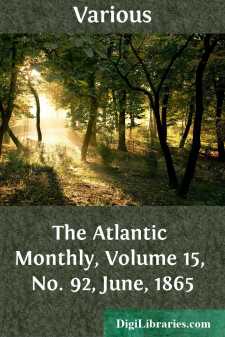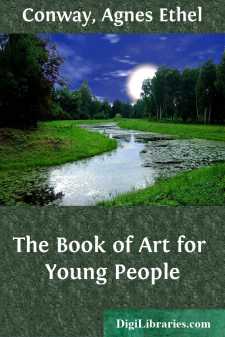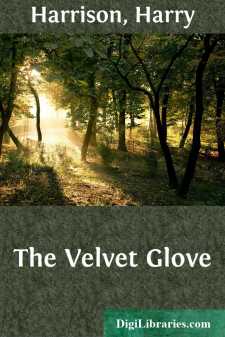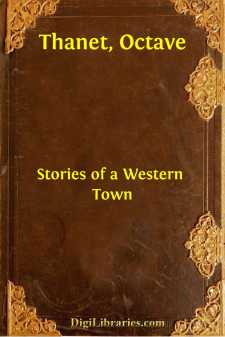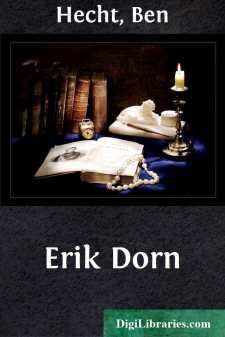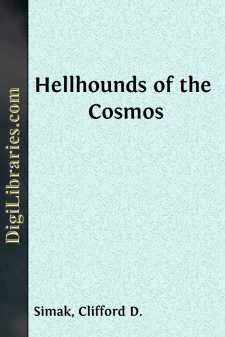Categories
- Antiques & Collectibles 13
- Architecture 36
- Art 48
- Bibles 22
- Biography & Autobiography 813
- Body, Mind & Spirit 142
- Business & Economics 28
- Children's Books 17
- Children's Fiction 14
- Computers 4
- Cooking 94
- Crafts & Hobbies 4
- Drama 346
- Education 46
- Family & Relationships 57
- Fiction 11829
- Games 19
- Gardening 17
- Health & Fitness 34
- History 1377
- House & Home 1
- Humor 147
- Juvenile Fiction 1873
- Juvenile Nonfiction 202
- Language Arts & Disciplines 88
- Law 16
- Literary Collections 686
- Literary Criticism 179
- Mathematics 13
- Medical 41
- Music 40
- Nature 179
- Non-Classifiable 1768
- Performing Arts 7
- Periodicals 1453
- Philosophy 64
- Photography 2
- Poetry 896
- Political Science 203
- Psychology 42
- Reference 154
- Religion 513
- Science 126
- Self-Help 84
- Social Science 81
- Sports & Recreation 34
- Study Aids 3
- Technology & Engineering 59
- Transportation 23
- Travel 463
- True Crime 29
Sort by:
by:
Various
A LETTER ABOUT ENGLAND. Dear Mr. Editor,—The name of your magazine shall not deter me from sending you my slight reflections But you have been across, and will agree with me that it is the great misfortune of this earth that so much salt-water is still lying around between its various countries. The steam-condenser is supposed to diminish its bulk by shortening the transit from one point to another;...
more...
PREFACE. The rapid advances made in the science of botany within the last few years necessitate changes in the text books in use as well as in methods of teaching. Having, in his own experience as a teacher, felt the need of a book different from any now in use, the author has prepared the present volume with a hope that it may serve the purpose for which it is intended; viz., an introduction to the...
more...
CHAPTER I INTRODUCTORY Almost the pleasantest thing in the world is to be told a splendid story by a really nice person. There is not the least occasion for the story to be true; indeed I think the untrue stories are the best—those in which we meet delightful beasts and things that talk twenty times better than most human beings ever do, and where extraordinary events happen in the kind of places...
more...
by:
Various
A FEW WORDS OF EXPLANATION. It was in no boastful or puffing spirit that, when thanking a correspondent in our last number for "his endeavour to enlarge our circulation," and requesting all our friends and correspondents "to follow PHILO'S example by bringing 'NOTES AND QUERIES' under the notice of such of their friends as take an interest in literary pursuits," we added...
more...
CROWS.THEY stream across the fading western skyA sable cloud, far o'er the lonely leas;Now parting into scattered companies,Now closing up the broken ranks, still highAnd higher yet they mount, while, carelessly,Trail slow behind, athwart the moving treesA lingering few, 'round whom the evening breezePlays with sad whispered murmurs as they fly.A lonely figure, ghostly in the dimAnd darkening...
more...
by:
Harry Harrison
Jon Venex fitted the key into the hotel room door. He had asked for a large room, the largest in the hotel, and paid the desk clerk extra for it. All he could do now was pray that he hadn't been cheated. He didn't dare complain or try to get his money back. He heaved a sigh of relief as the door swung open, it was bigger than he had expected—fully three feet wide by five feet long. There...
more...
by:
Octave Thanet
THE BESETMENT OF KURT LIEDERS A SILVER rime glistened all down the street. There was a drabble of dead leaves on the sidewalk which was of wood, and on the roadway which was of macadam and stiff mud. The wind blew sharply, for it was a December day and only six in the morning. Nor were the houses high enough to furnish any independent bulwark; they were low, wooden dwellings, the tallest a bare two...
more...
by:
Ben Hecht
CHAPTER I An old man sat in the shadows of the summer night. From a veranda chair he looked at the stars. He wore a white beard, and his eyes, grown small with age, watered continually as if he were weeping. Half-hidden under his beard his emaciated lips kept the monotonous grimace of a smile on his face. He sat in the dark, a patient, trembling figure waiting for bedtime. His feet, though he rested...
more...
First Meeting between a citizen in Spectacles and the Great Pleasure-Dog Behemoth; also of Charles Gardiner West, a Personage at Thirty. It was five of a November afternoon, crisp and sharp, and already running into dusk. Down the street came a girl and a dog, rather a small girl and quite a behemothian dog. If she had been a shade smaller, or he a shade more behemothian, the thing would have...
more...
The paper had gone to press, graphically describing the latest of the many horrible events which had been enacted upon the Earth in the last six months. The headlines screamed that Six Corners, a little hamlet in Pennsylvania, had been wiped out by the Horror. Another front-page story told of a Terror in the Amazon Valley which had sent the natives down the river in babbling fear. Other stories told of...
more...


